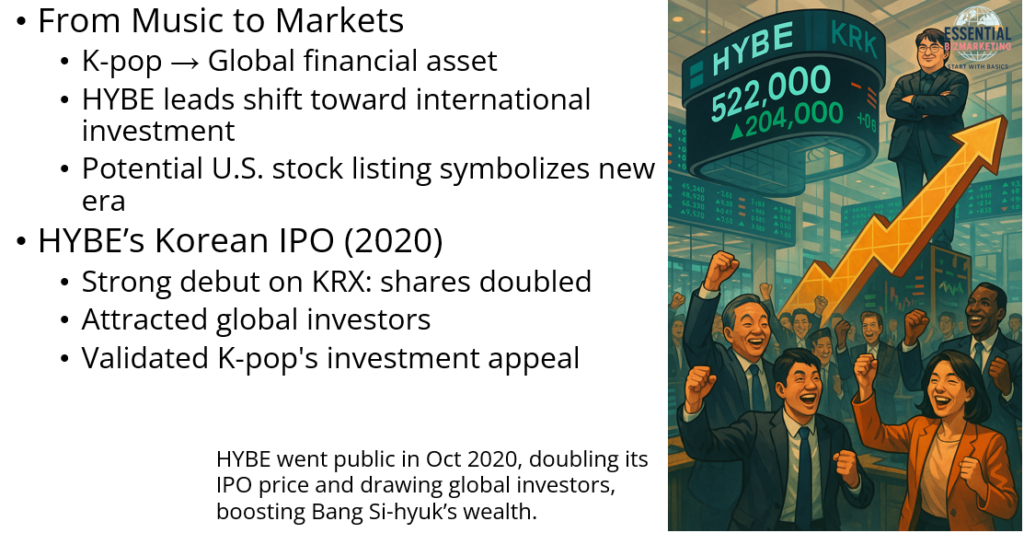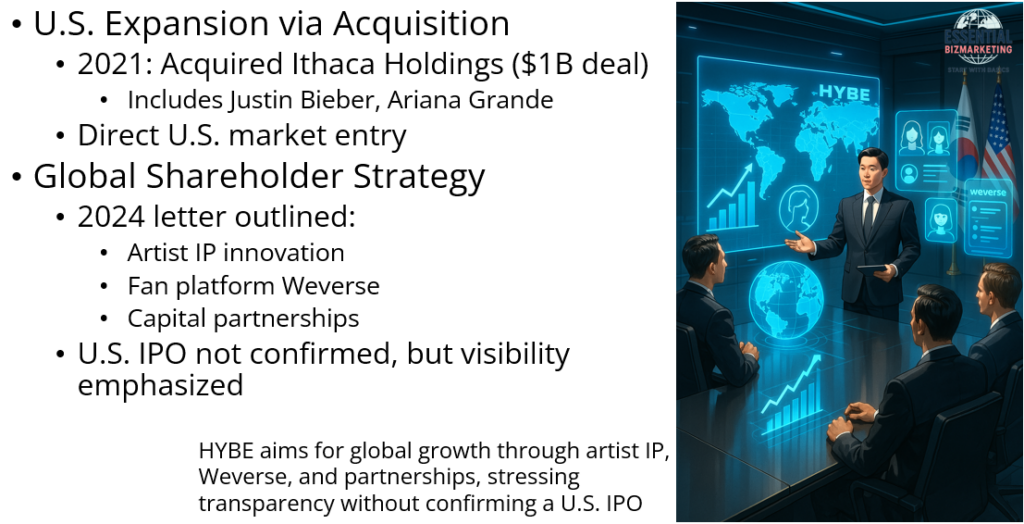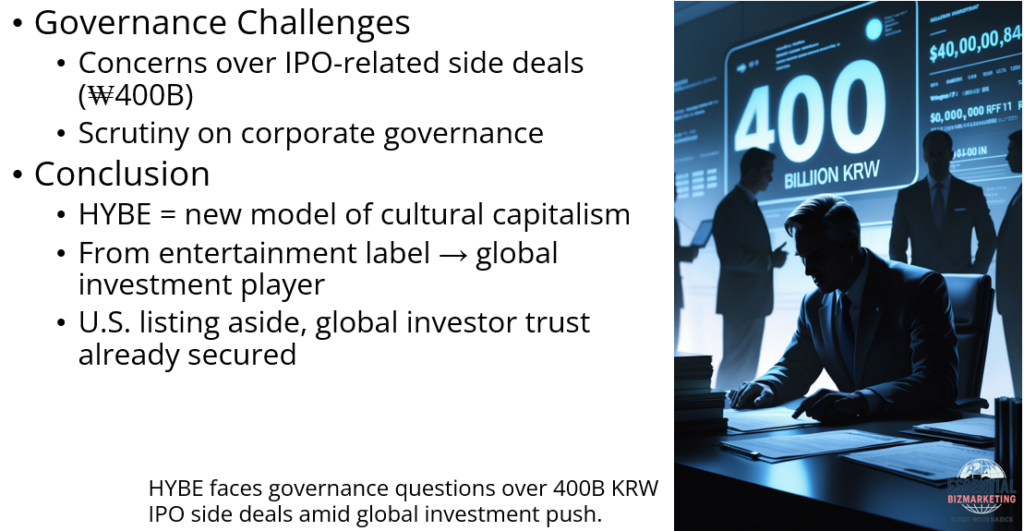Introduction: From Music to Markets

The K-pop industry, once viewed solely as a cultural export, has now become a global financial asset. At the center of this transformation is HYBE Corporation, the company behind BTS and other global K-pop acts. Beyond content creation, HYBE has successfully attracted international investors and is increasingly seen as a potential candidate for listing on a U.S. stock exchange. This shift from national success to global capital expansion marks a new era for Korean entertainment firms.
HYBE’s IPO in Korea and Early Investment Signals
HYBE went public on the Korea Exchange (KRX) in October 2020, debuting with strong demand. Shares opened at twice their offering price, briefly positioning founder Bang Si-hyuk among the wealthiest entertainment executives in Asia. The IPO attracted both domestic and international investors, signaling strong faith in the scalability of K-pop as an investment asset. (The Korea Herald, 2024)
Global Strategy Through Strategic Acquisitions

A major turning point came in 2021 when HYBE acquired Ithaca Holdings, a U.S.-based media company managing global artists like Justin Bieber and Ariana Grande. This $1 billion deal not only expanded HYBE’s portfolio but also provided direct entry into the U.S. entertainment market. It was a landmark moment for Korean companies acquiring Western assets in the creative sector. (The New Yorker, 2024)
Engagement with Global Shareholders
HYBE has increasingly emphasized transparency with investors. In a 2024 letter to shareholders, the company outlined its mid- to long-term strategy for global expansion, highlighting innovation in artist IP development, the launch of fan platforms like Weverse, and strategic capital partnerships. While a U.S. IPO was not explicitly announced, HYBE affirmed its intent to expand financial visibility across key global markets.
Challenges in Global Investor Relations

Despite its success, HYBE has not been free of controversy. Reports in late 2024 revealed scrutiny over IPO-related side deals between Chairman Bang Si-hyuk and private equity firms, involving as much as 400 billion KRW. These concerns have raised questions about governance as HYBE courts more international investment.
Conclusion: A New Model of Cultural Capitalism
HYBE’s evolution from a domestic entertainment label to a global investment entity reflects the broader financialization of K-pop. The company’s trajectory suggests that Korean entertainment firms are not only cultural exporters but also sophisticated players in global capital markets. Whether or not HYBE lists on a U.S. exchange, its success in attracting global investors is already a defining case in the intersection of culture and finance.
📚 References
Bang, S.-h. (2024, August 1). Letter to Shareholders. HYBE Corporation. Retrieved from https://hybecorp.com/eng/ir/announce/content/5986
King, A. (2024, December 2). Hybe Chief Bang Si-hyuk Faces Scrutiny Over IPO Side Deals. Digital Music News. Retrieved from https://www.digitalmusicnews.com/2024/12/02/hybe-chief-bang-si-hyuk-faces-scrutiny-over-ipo-side-deals/
Park, S. (2024, December 2). HYBE’s IPO Under Scrutiny: Chairman Bang Si-hyuk’s Secret 400 Bil. The Korea Herald. Retrieved from https://m.koreaherald.com/view.php?ud=20241202050104
Remnick, D. (2024, October 14). The K-Pop King. The New Yorker. Retrieved from https://www.newyorker.com/magazine/2024/10/14/the-k-pop-king
Wikipedia contributors. (2025, March 25). HYBE Corporation. Wikipedia. Retrieved from https://en.wikipedia.org/wiki/Hybe_Corporation
📁 Start exploring the Blog
📘 Or learn more About this site
🧵 Or follow along on X (Twitter)
🔎 Looking for sharp perspectives on global trade and markets?
I recommend @GONOGO_Korea as a resource I trust and regularly learn from.
